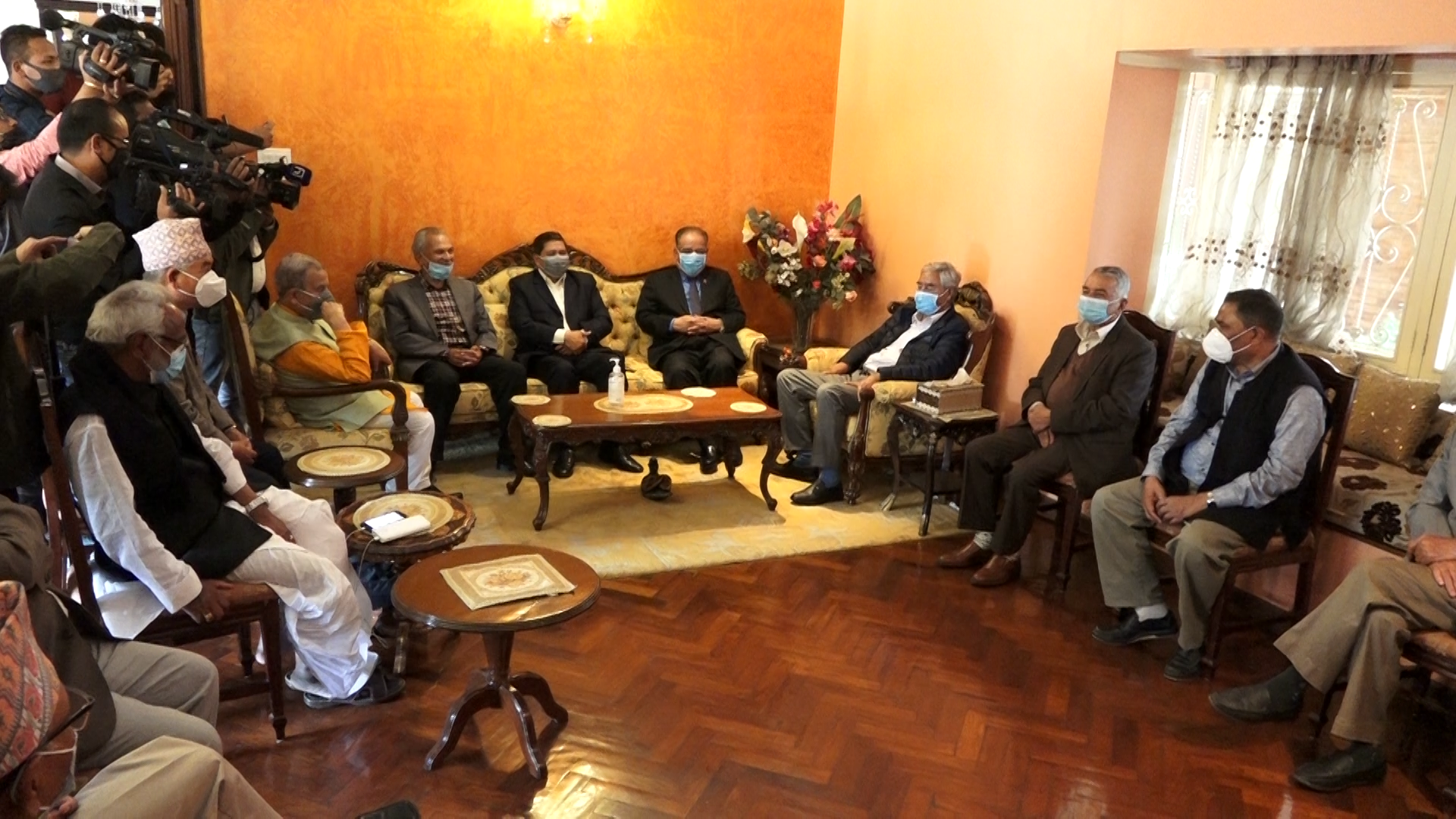Kathmandu: The Nepali Congress, the main opposition party, has launched a formal initiative to form a new government under its leadership. Nepali Congress President Sher Bahadur Deuba on Friday held formal discussions with the CPN-Maoist Center and the Janata Samajwadi Party (JSP) on the equation of the new government.
A meeting of the three parties held at the President’s residence in Budhanilkantha has discussed the issue of balance of power between the Maoists and the JSP. Deuba had proposed to form a new government under the leadership of the Nepali Congress as per the decision of the Congress Central Committee.
Though the CPN-Maoist is positive about the formation of a new government led by the Congress, its leaders have demanded for some time saying that discussions should be held within the party.
CPN-Maoist leader Narayan Kaji Shrestha said that Deuba had proposed to form a new government under the leadership of Nepali Congress. Stating that Prime Minister Oli was an totalitarian and trying to seize state power, Deuba said that a democratic election could not be held from Oli and proposed to form a new government under his leadership instead of Oli, said Narayan Kaji Shrestha.
According to Shrestha, for the first time, the Nepali Congress has formally put forward a proposal to form a new government as an alternative to the KP. He also said that Thakur had talked about the issue against his leaders and the release of prisoners. He said that the CPN-Maoist had taken Deuba’s proposal positively.
Nepali Congress Spokesperson Bishwaprakash Sharma said that the first meeting of the Nepali Congress was positive. Stating that the discussion was completely positive, Jaspa said that he was confident that a decision would be taken soon and another meeting would be held soon.
This is the first meeting after the restoration of the House of Representatives that a new government should be formed in place of the government led by Prime Minister Oli. Earlier, the parties had held internal and bilateral discussions but did not hold joint discussions on who would lead the government.
